
March 31
1492 Jews to be expelled from Spain:
In Spain, a royal edict is issued by the nation's [Christian] rulers declaring that all Jews who refuse to convert to Christianity will be expelled from the country. Most Spanish Jews chose exile rather than the renunciation of their religion and culture, and the Spanish economy suffered with the loss of an important portion of its workforce. Many Spanish Jews went to North Africa, the Netherlands, and the Americas, where their skills, capital, and commercial connections were put to good use. [Note: This is the origin of the Sephardi Jews.‑‑Ed.] Among those who chose conversion, some risked their lives by secretly practicing Judaism, while many sincere converts were nonetheless persecuted by the Spanish Inquisition. The Spanish Muslims, or Moors, were ordered to convert to Christianity in 1502. (History.com)
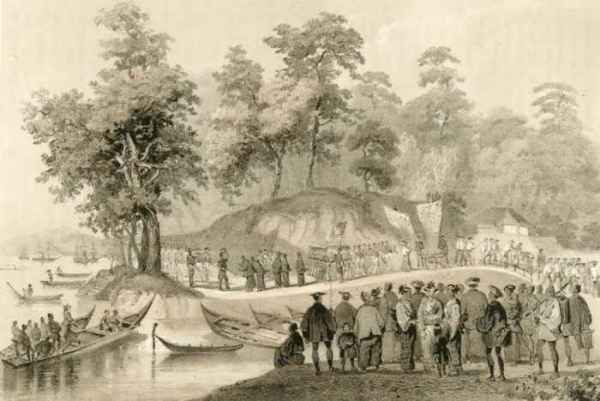
1854 Treaty of Kanagawa signed with Japan:
In Tokyo, Commodore Matthew Calbraith Perry, representing the U.S. government, signs the Treaty of Kanagawa with the Japanese government, opening the ports of Shimoda and Hakodate to American trade and permitting the establishment of a U.S. consulate in Japan.
In July 1853, Commodore Perry sailed into Tokyo Bay with a squadron of four U.S. vessels. For a time, Japanese officials refused to speak with Perry, but eventually they accepted letters from U.S. President Millard Fillmore, making the United States the first Western nation to establish relations with Japan since it was declared closed to foreigners in 1683.
After giving Japan time to consider the establishment of external relations, Perry returned to Tokyo in March 1854, and on March 31 signed the Treaty of Kanagawa, which opened Japan to trade with the United States, and thus the West. In April 1860, the first Japanese diplomats to visit a foreign power reached Washington, D.C., and remained in the U.S. capital for several weeks discussing expansion of trade with the United States. (History.com) [See: Countdown to Infamy: Timeline to Pearl Harbor.]
1889 Eiffel Tower opens:
On March 31, 1889, the Eiffel Tower is dedicated in Paris in a ceremony presided over by Gustave Eiffel, the tower's designer, and attended by French Prime Minister Pierre Tirard, a handful of other dignitaries, and 200 construction workers.
In 1889, to honor of the centenary of the French Revolution, the French government planned an international exposition and announced a design competition for a monument to be built on the Champ-de-Mars in central Paris. Out of more than 100 designs submitted, the Centennial Committee chose Eiffel's plan of an open-lattice wrought-iron tower that would reach almost 1,000 feet above Paris and be the world's tallest man-made structure. Eiffel, a noted bridge builder, was a master of metal construction and designed the framework of the Statue of Liberty that had recently been erected in New York Harbor. [For further details, Click here.]
1905 Countdown to World War I: The First Moroccan Crisis:
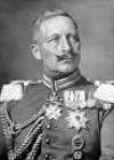
On this day in 1905, Kaiser Wilhelm of Germany arrives in Tangiers to declare his support for the sultan of Morocco, provoking the anger of France and Britain in what will become known as the First Moroccan Crisis, a foreshadowing of the greater conflict between Europe's great nations still to come: the First World War.
The Kaiser did not have any substantive interest in Morocco; neither did the German government. The central purpose of his appearance was to disrupt the Anglo-French Entente, formed in April 1904 . . . . By its terms, Britain could pursue its interests in Egypt, while France was free to expand westward from Algeria into Morocco, the last territory that remained independent in the region. France subsequently signed an agreement with Spain dividing Morocco into spheres of influence, with France receiving the greater part.
Angered by its exclusion from the decisions made about North Africa, Germany believed that the Anglo-French Entente went a long way towards the creation of a new diplomatic balance in Europe itself. An international convention had guaranteed the independence of Morocco in 1880; Germany now saw that the friendship between two of Europe's most powerful nations threatened to override this, and thus also posed a challenge to Germany's own influence in Europe and the world.
With much pomp and circumstance, Wilhelm . . . arrived in Tangiers on March 31, 1905. In what would be known as the open door speech, he announced that he looked upon the sultan of Morocco as the ruler of a free and independent empire subject to no foreign control and that he himself would always negotiate with the Sultan. He also stated that he expected Germany to have advantages in trade and commerce with Morocco equal to that of other countries. Wilhelm's sensational appearance marked an aggressive departure from the German foreign policy under the legendary Otto von Bismarck who, as Chancellor had united the German empire in 1871 and had advocated conciliatory gestures towards France and other European rivals as a key part of German foreign policy. Slightly more than two years before the outbreak of World War I, then, the two Moroccan crises left no doubt that the traditional power balance in Europe had shifted into large blocs of power, with Germany relatively isolated on one side—enjoying only lukewarm support from Austria-Hungary and Italy—and Britain, France, and Russia on the other. [For further details, Click here]
1920 Gefreiter Adolf Hitler is officially discharged from the 41 Rifle Regiment of the Reichswehr. [See: Was Adolf Hitler a 'War Hero' in World War I?]
1933 Various:
Boycott etc.: The American Jewish Committee and the B'nai B'rith issue a formal, official joint statement, counseling "that no American boycott against Germany be encouraged," and advising "that no further mass meetings be held or similar forms of agitation be employed." (THP)
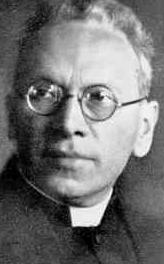
Church and Reich: Monsignor Kaas is back in Berlin after being recalled for talks with Hitler. (THP)
Austria: the Schutzbund a Socialist uniformed defense force, is ordered disbanded by the government.
Holocaust: Oranienburg near Berlin, is officially established as a concentration camp.
1938 Poland: Expatriates Law is passed by the Polish Senate, canceling citizenship for Polish Jews living outside the country, unless their passports are checked and stamped by Polish consular officials by the end of October. (THP)
1939 Various:
Holocaust: Robert Ley, Reich labor leader, speaks on the subject of the Jews:
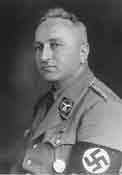
If the Jew wants to fight, it is fine with us. We have wanted that fight for a long time. There is no room in the world for the Jews any more. The Jew or us, one of us will have to go. We know that the Jew will lose, that he and his devilish, life-denying, and destructive doctrines will be destroyed (vernichtet), Look around and see how the emigrants are increasing; even London has noticed. In Rome, they found the smartest Jesuit they had. A brutal butcher sits in Moscow. They form the front, and the Jew is behind them all.
Poland: Guarantee: Britain and France sign an agreement with Poland, guaranteeing its borders against aggression. These "unconditional" guarantees concern only Poland's western border, not its frontiers with the Soviet Union. Note: David Lloyd George warns the British parliament that the agreement with Poland is meaningless without Russia's cooperation.
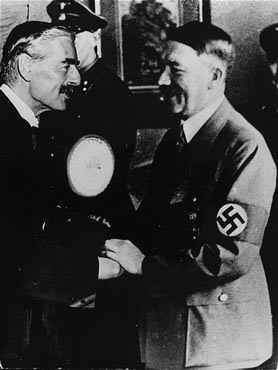
Neville Chamberlain tells the House of Commons that the British government considers itself bound to come immediately to Poland's aid the moment the Polish government feels its existence is in danger. The news of Chamberlain's guarantee throws Hitler into a rage.
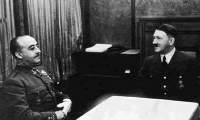
Germany and Spain conclude a Treaty of Friendship.
1940 World War II: Various:
War at Sea: Atlantis: The German auxiliary cruiser sets off on a mission to catch and sink Allied merchant ships. By the time the Atlantis sets sail from Germany, the Allies have already lost more than 750,000 tons worth of shipping, the direct result of German submarine attacks. They have also lost another 281,000 tons because of mines, and 36,000 tons as the result of German air raids. The Germans have lost just eighteen submarines at this point. The Atlantis had been a merchant ship itself, but was converted to a commerce raider with six 5.9-inch guns, 93 mines ready to plant, and two aircraft fit for spying out Allied ships to sink. The Atlantis will don various disguises in order to integrate itself into any shipping milieu inconspicuously. Commanded by Captain Bernhard Rogge, the Atlantis will roam the Atlantic and Indian oceans. She will sink a total of 22 merchant ships (146,000 tons in all) and prove a terror to the British Royal Navy. The Atlantis's career will finally come to an end on 22 November 1941, when it will be sunk by the British cruiser Devonshire as the German marauder is refueling a U-boat.
Holocaust: One of Professor Fischer's assistants travels to the ghetto in Lodz to take photographs to be used for comparison with pictures in a book on Jewry in antiquity, which Fischer is planning. (THP)
1942 Resistance: Minsk: The Gestapo raids the ghetto, capturing several Jewish leaders who have attempted to organize a resistance group. (THP)
1944 World War II: War in the Air: The RAF loses 96 of 795 planes taking part in a raid on Nuremberg; said to be the worst losses suffered by the RAF during the entire war.
1945 World War II: Various:
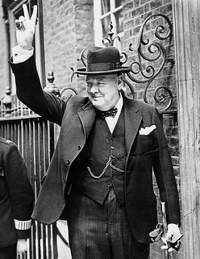
Churchill to Ismay:
I hope however we shall realize that we have only a quarter of the forces invading Germany, and that the situation has thus changed remarkably from the days of June 1944 . . . .
It seems to me that the chief criticism of the new Eisenhower plan is that it shifts the axis of the main advance upon Berlin to the direction through Leipzig to Dresden, and thus raises the question of whether the Twenty-first Army Group will not be so stretched as to lose its offensive power, especially after it has been deprived of the Ninth United States Army. Thus we might be condemned to a static role in the north and virtually prevented from crossing the Elbe until an altogether later stage in the operations has been reached. All prospect also of the British entering Berlin with the Americans is ruled out . . . .
It also seems that General Eisenhower may be wrong in supposing Berlin to be largely devoid of military and political importance. Even though German Government departments have to a great extent moved to the south, the dominating fact on German minds of the fall of Berlin should not be overlooked. The idea of neglecting Berlin and leaving it to the Russians to take at a later stage does not appear to me to be correct. As long as Berlin holds out and withstands a siege in the ruins, as it may easily do, German resistance will be stimulated. The fall of Berlin might cause nearly all Germans to despair.
Churchill to Eisenhower:
I do not know why it would be an advantage not to cross the Elbe. If the enemies' resistance should weaken, as you evidently expect and which may be fulfilled, why should we not cross the Elbe and advance as far east as possible? This has an important political bearing, as the Russian armies of the South seem certain to enter Vienna and overrun Austria. If we deliberately leave Berlin to them, even if it should be in our grasp, the double event may strengthen their conviction, already apparent, that they have done everything.
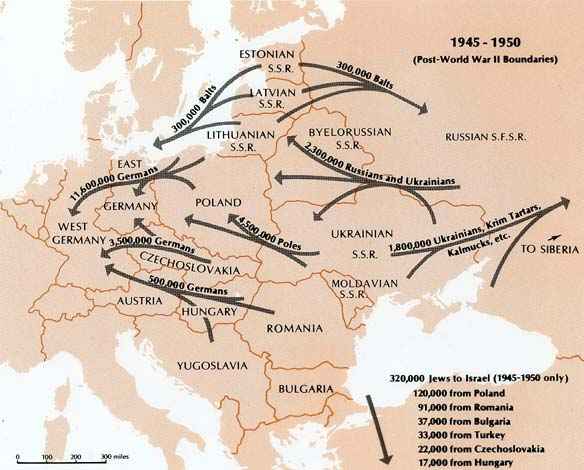
A secret codicil (kept secret for over 50 years) to the Yalta agreement is completed: Stalin agrees that as the Russians liberate POW camps in Germany, American and British POWs will be turned over to the American and British forces. Likewise, as the Americans and British liberate German POW camps, Russian POWs will, in all cases, be returned to Russia. Unfortunately, while American and British POWs want to return to their own forces, Russian POWs, in the main, do not want to return to Russia because they know what awaits them. Stalin has made it clear that he considers Russian prisoners traitors to communism. Death or exile will be their fate. FDR and Churchill, aware of these facts, agree anyway; it is hard to see how they could do otherwise without running the risk of having their own troops become virtual hostages. Note: This is one of the events collectively referred to by some as the 'Allied Holocaust.' Ultimately, two million Soviet citizens will be sent back to the communists where they will either be immediately executed or sent to die in the Gulag. Averell Harriman will later recall:
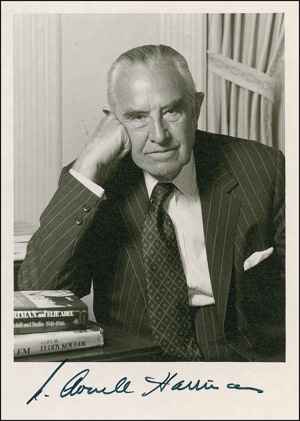
Our officers were thinking of the welfare of our own prisoners, some seventy-five thousand men, who without exception could not get home quickly enough. We had no idea that hundreds of thousands of the Soviet citizens would refuse because they had reason to suspect they would be sent to their deaths or to Beria's prison camps. That knowledge came later. (Harriman)
[See: The Last Days of the Third Reich.]1947 Death: Qazi Muhammed: father of Kurdistan: The only president of the world's only Kurdish state was hanged with two aides in Mahabad, the Iranian city that had been the capital of his nascent country.
Ground between the maneuvers of much more powerful states‑-the stereotypical fate of the Kurds‑-Qazi Muhammed's endgame begins not in mountainous northwest Iran where he declared the short-lived Republic of Mahabad (alternatively, Mehabad), but in Berlin, where a distant dictator had hurled Europe's great powers into war.
The contest for influence in Middle East and its lifeblood of oil for the modern mechanized army forms a crucial sidebar to World War II's European chessboard, and the unpredictable collisions between rival empires and competing anticolonial interests made many strange bedfellows.
Two months after Germany invaded the Soviet Union, British and Soviet troops jointly seized Iran from its potentially pro-German ruler, securing both oil resources, and a precious route for sending American supplies to Russia's desperately pressed defenders.
Kurds were very far from Stalin or Churchill's calculation, but the moment also offered a power vacuum permitting de facto Kurdish self-rule in a narrow band straddling Soviet and British occupation zones.
As the war drew to a close, erstwhile allies began girding for the Cold War,and the disposition of Iran was a dress rehearsal. Moscow was keen to maintain influence in that country's north, and to that end encouraged Iran's Azerbaijani region to break away as an independent state: which it did in December 1945. The Kurdish Republic of Mahabad followed suit on January 22, 1946 (a date still commemorated by Kurdish activists) with Qazi Muhammed as president. Although the Mahabad Republic is sometimes characterized as "Soviet-backed," or even a Soviet puppet, that might be a better description of its hopes than its reality.
Mahabad may have represented the national dream for Kurds, but it was a small pawn to the Soviets, easily sacrificed when its position became untenable. Moscow's priorities were elsewhere, and this was the brief window when America was the only nuclear power: the Red Army was (diplomatically) forced out of Iran and the breakaway Republics reoccupied by the western-backed Iranian government. And Mahabad, a statelet founded by a middle class party with only limited backing from tribal chiefs, required Soviet support to have any hope of holding up.
Seeing where the wind was blowing, the Kurds submitted in December 1946 to the advancing Iranian army without a hopeless fight, but Muhammed refused on his honor to flee, hoping to placate the Iranians.
For all its inadequacies, Mahabad was the only Kurdish state of the 20th century, and Qazi Muhammed its founder and only president. That has earned him a place of honor in the crowded pantheon of Kurdish martyrs.
After a military court had [Qazi Muhammed] hanged, leadership of the Kurdish struggle passed to Mustafa Barzani, whose refugee guerrillas had made declaration of the Kurdish state a possibility in the first place. [For further details, Click here]
1948 Marshall Plan: The US Congress passes the Marshall Aid Act to rehabilitate war-ravaged Europe.
The United States offered up to $20 billion for relief, but only if the European nations could get together and draw up a rational plan on how they would use the aid. For the first time, they would have to act as a single economic unit; they would have to cooperate with each other. Marshall also offered aid to the Soviet Union and its allies in eastern Europe, but Stalin denounced the program as a trick and refused to participate. The Russian rejection probably made passage of the measure through Congress possible. The Marshall Plan, it should be noted, benefited the American economy as well. The money would be used to buy goods from the United States, and they had to be shipped across the Atlantic on American merchant vessels. But it worked. By 1953 the United States had pumped in $13 billion, and Europe was standing on its feet again. Moreover, the Plan included West Germany, which was thus reintegrated into the European community. (The aid was all economic; it did not include military aid until after the Korean War.) Aside from helping to put Europe back on its feet, the Marshall Plan led to the Schuman Plan, which in turn led to Euratom, then the Coal and Iron Community and the Common Market, and pointed to what may yet evolve into an economically and politically united Europe.
1954 Spandau Prison: From Spandau: The Secret Diaries, by Albert Speer:
When Funk is not bedridden, he walks back and forth in the garden with Schirach for a few hours. The American guard Felner recently called them "the two evil spirits." But nowadays Funk is in bed almost all the time. Today the doctor came, because Funk was supposedly on the verge of uremia and had almost lost consciousness. Doenitz calls that "an attempted escape." Raeder, too, is envious of Funk's chances of being taken to the hospital. When he was passing the cell today he punned to Felner, "Well, he doesn't seem to be in such a funk after all." (Speer II)
1959 Dalai Lama begins exile: The Dalai Lama, fleeing the Chinese suppression of a national uprising in Tibet, crosses the border into India, where he is granted political asylum. [For further details, Click here]
1991 Cold War: Warsaw Pact ends:
After 36 years in existence, the Warsaw Pact‑-the military alliance between the Soviet Union and its eastern European satellites‑-comes to an end. The action was yet another sign that the Soviet Union was losing control over its former allies and that the Cold War was falling apart.
The Warsaw Pact was formed in 1955, primarily as a response to the decision by the United States and its western European allies to include a rearmed West Germany in the North Atlantic Treaty Organization (NATO). NATO had begun in 1949 as a defensive military alliance between the United States, Canada, and several European nations to thwart possible Soviet expansion into Western Europe. In 1954, NATO nations voted to allow a rearmed West Germany into the organization. The Soviets responded with the establishment of the Warsaw Pact. The original members included the Soviet Union, East Germany, Poland, Hungary, Romania, Bulgaria, Czechoslovakia, and Albania. Although the Soviets claimed that the organization was a defensive alliance, it soon became clear that the primary purpose of the pact was to reinforce communist dominance in Eastern Europe. In Hungary in 1956, and then again in Czechoslovakia in 1968, the Soviets invoked the pact to legitimize its interventions in squelching anticommunist revolutions.
By the late-1980s, however, anti-Soviet and anticommunist movements throughout Eastern Europe began to crack the Warsaw Pact. In 1990, East Germany left the Warsaw Pact in preparation for its reunification with West Germany. Poland and Czechoslovakia also indicated their strong desire to withdraw. Faced with these protests‑-and suffering from a faltering economy and unstable political situation‑-the Soviet Union bowed to the inevitable. In March 1991, Soviet military commanders relinquished their control of Warsaw Pact forces. A few months later, the pact's Political Consultative Committee met for one final time and formally recognized what had already effectively occurred: the Warsaw Pact was no more. (History.com)
Edited by Levi Bookin (Copy editor)
levi.bookin@gmail.com



Click to join 3rdReichStudies

Please note that the list-owner and the moderator are not responsible for, and do not necessarily approve of, the random ads placed on our pages by our web server. They are, unfortunately, the price one pays for a 'free' website.
FAIR USE NOTICE: This site may contain copyrighted material the use of which has not always been specifically authorized by the copyright owner. We are making such material available in our efforts to advance understanding of historical, political, human rights, economic, democracy, scientific, environmental, and social justice issues, etc. We believe this constitutes a 'fair use' of any such copyrighted material as provided for in section 107 of the US Copyright Law. In accordance with Title 17 U.S.C. Section 107, the material on this site is distributed without profit to those who have expressed a prior interest in receiving the included information for research and educational purposes. If you wish to use copyrighted material from this site for purposes of your own that go beyond 'fair use', you must obtain permission from the copyright owner.